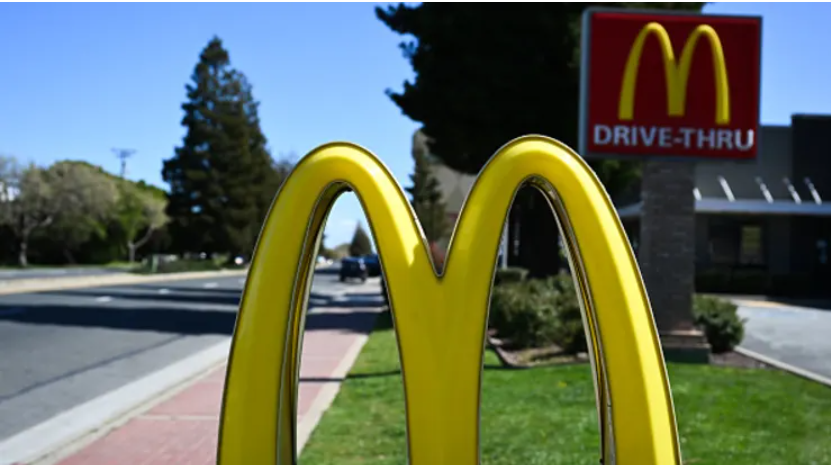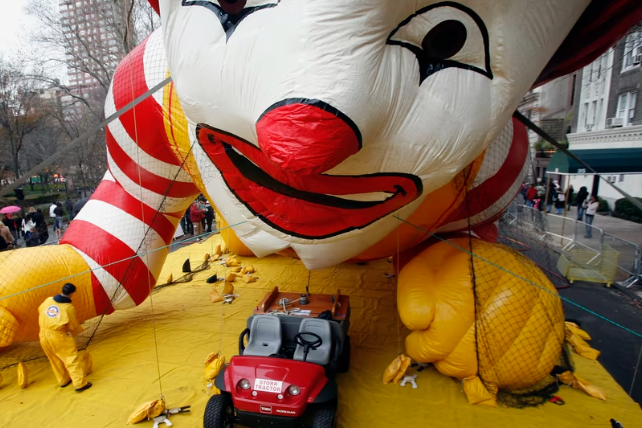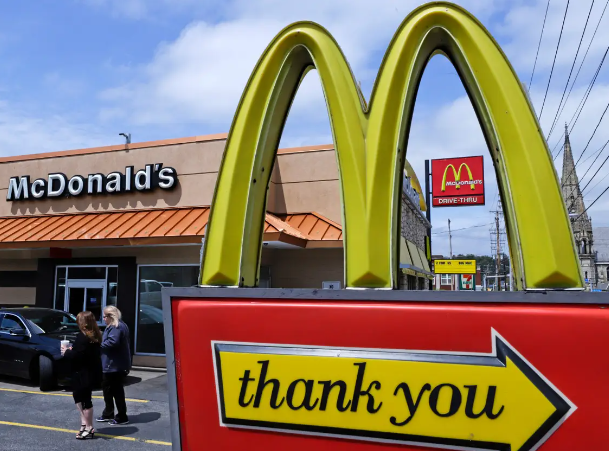- ESSENTIAL POINTS
- An independent advocacy organization of McDonald’s owners is fighting against what it claims would be a “devastating financial blow” to its franchises in the state after California lawmakers enacted a historic fast-food rule,
- Late on Thursday, the state Senate approved AB 1228, and it now goes to governor Gavin Newsom for his signature. He has promised to make it a law.
- Starting on April 1, it includes a $20 minimum wage for Californians employed by fast-food businesses with at least 60 sites nationally.

On April 3, 2023, a McDonald’s fast food restaurant is spotted in Belmont, United States.
An independent advocacy organization of McDonald’s owners is fighting against what it claims would be a “devastating financial blow” to its franchises in the state after California lawmakers enacted a historic fast-food rule, according to a message to its members .
Late on Thursday, the state Senate approved AB 1228, and it now goes to governor Gavin Newsom for his signature. He has already committed to approving the legislation. Starting on April 1, it includes a $20 minimum wage for Californians employed by fast-food businesses with at least 60 sites nationally.

Labor organizations campaigned for even higher pay in earlier legislation, but the $20 an hour threshold that resulted won out. The agreement will result in a sizeable boost for many workers, even in a state where the minimum salary is $15.50 and the pay floor is considerably higher in several towns. Franchisee and restaurant advocacy organizations have backed the law, but other business owners are worried about what it would mean for operations in a difficult labor market and at a time of rising inflation.
According to a document from the National Owners Association, a nonprofit lobbying organization of more than 1,000 McDonald’s owners, the measure will cost each shop in the state $250,000 a year. The organization asserted that the expenditures “simply cannot be absorbed by the business model.” It also provided a warning.
Additionally, the group stated in the letter that “a small coalition of franchisors, including McDonald’s, the National Restaurant Association (NRA), and the International Franchise Association (IFA), independently w/o franchisee involvement, negotiated a deal with the [Service Employees International Union]; causing the legislative outcome to now become certain.”

On Monday, McDonald’s wrote its own message to its restaurant network, saw. The corporation claimed in response to the law that it and other franchisee associations “worked tirelessly over the past year to fight these policies and protect Owner/Operators’ ability to make decisions for their businesses locally and protect their restaurants and their crew.”
“This included forming a coalition of brands to refer [an earlier version of the bill] to California voters in November 2024 — while expensive and unexpected we felt we had no other choice. We also significantly increased our political engagement in the state. This included a newly established North America Impact Team to work horizontally, new lobbyists and campaign consultants, and a dramatic step-change in our political activity,” It penned.
The business chose not to elaborate further on the letter or stance of the NOA.
In a statement, Californian McDonald’s franchisee Roger Delph claimed that while serving on the state’s owner/operator task force, he collaborated with McDonald’s, other franchisees, and other businesses to “protect” the business model from what he described as “an all-out attack.”
He explained, “That entailed several discussions and meetings, as well as a direct dialogue with the Governor’s office. “Anyone suggesting this was not a collaborative and effective effort to protect the franchised business model in California, or that franchisee involvement was absent, was either not involved, or is twisting the facts,” the statement reads.
image source: google




































